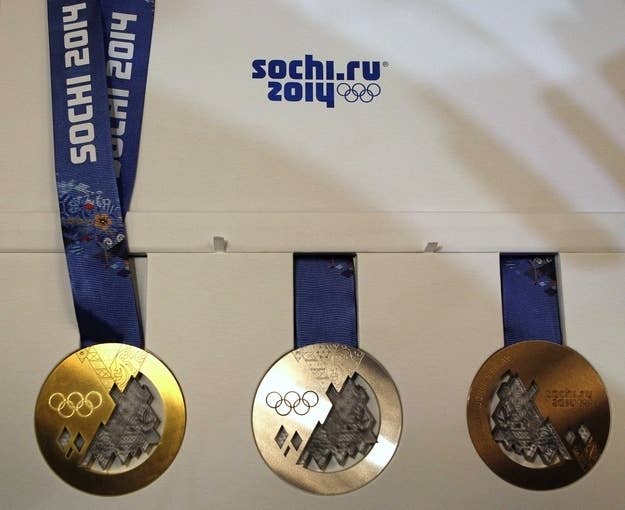
WASHINGTON — A rule banning "political ... propaganda" from Olympic sites is not "a sanction," an International Olympic Committee spokeswoman told BuzzFeed, but rather "a means to protect the athletes" from outside pressure.
The possibility of protests at the planned Winter Olympics in Sochi, Russia, because of the country's passage of a law that could ban almost all public support of LGBT rights sparked the response from the IOC. The response came after BuzzFeed published a report detailing a series of questions the committee has not answered in advance of games.
Specifically, the IOC has invoked Rule 50 of the Olympic Charter, which bans "demonstration or political, religious or racial propaganda" from Olympic sites, when asked about the potential for pro-LGBT displays at the games.
"Rule 50 of the Olympic Charter is in place to ensure the Games remain free from proactive protests and demonstrations of any kind. It should not be seen as a sanction but rather as a means to protect the athletes who might be pressured to use the Games as a platform to make statements," Emmanuelle Moreau, an IOC spokeswoman, told BuzzFeed Monday.
She added, "It is thanks to this rule that athletes from over 200 nations can and will continue to compete in a neutral environment."
Notably, Moreau's statement did not respond directly to BuzzFeed's request for information about how Rule 2 — the Olympic rule that mandates the IOC "act against any form of discrimination affecting the Olympic Movement" — figures into the IOC's consideration of whether an action would be subject to the confines of Rule 50.
Regarding the secondary question of what would happen to athletes who take action in violation of Rule 50, Moreau continued to provide an indefinite answer — although she did say that "often" an "informal conversation" would be the first step in addressing any situation that might arise.
"[T]he IOC will always take a sensible approach when dealing with potential actions and always act on a case by case basis. This often starts by having an informal conversation with the athletes concerned who in most cases understand the spirit of the rule and subsequently refrain from any proactive action," Moreau told BuzzFeed.
